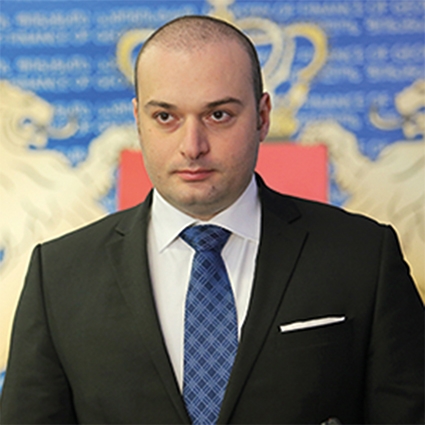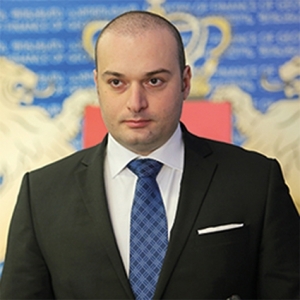New Prime Minister’s Plans for Change
Mamuka Bakhtadze is Georgia’s new Prime Minister. On June 20, Parliament voted 99-6 in favor of Bakhtadze and his interim cabinet, which he has said he plans to adjust within three weeks of his term beginning. Bakhtadze sees himself as a reformer, and has already announced several policies he hopes to enact.
Speaker of the Georgian Parliament and GD member Irakli Kobakhidze called Bakhtadze “distinguished by his education and versatility. He is a very serious expert in economy.” Bakhtadze worked for Georgian Railways from 2005-2017, including as CEO from 2013-2017, before becoming Minister of Finance. At Georgian Railways, he lobbied on behalf of the Georgian position for Project Viking, ZUBR and the South-West corridor. Bakhtadze also actively contributed to Georgia joining China’s One Belt One Road initiative, focusing on Georgia’s role as a regional transport hub. Bakhtadze moved from the private sector to the Ministry of Finance just eight months before being nominated for prime minister.
During a speech accepting his nomination for prime minister, Bakhtadze listed his four main principles of governance. First, “A new economic model with new fair rules,” promising to deliver reforms “in all directions,” affecting every Georgian family. Second, small government, with stronger institutional and public control and less corruption, “the starting point is that we need a small, effective and flexible government. Small government, of course, means that certain agencies may be united,” said Bakhtadze. Third, “Georgia’s full integration into the Euro-Atlantic space,” strengthening and deepening cooperation between Georgia and partner countries and organizations. Fourth, “Education, innovation, youth — The biggest priority of my life.”
Until his nomination, Bakhtadze’s most significant move in public office was introducing sweeping reforms to the banking sector. In April, he called Georgia’s very profitable banks an impediment to the national economy by encouraging growing debt among citizens. While, as Finance Minister, bank reform was not in his purview, as Prime Minister, Bakhtadze will have the power to initiate any reforms he sees fit – with the support of his party, of course.
In plans announced since his nomination, Bakhtadze has discussed wanting to reform the banking sector, most notably: Cutting the effective annual interest rate ceiling on loans to 50% instead of 100%; Recalculation of late fees on loans, including lowering them; Prohibiting banks from seizing property not listed as collateral in a loan agreement. He also plans to create a “financial arm” of the Georgian Government to spend up to 1% of GDP on affordable loans for small, local start-ups. Banking sector reforms could lessen the burden of debt on a nation with low salaries and high unemployment. Predatory lending practices are common in Georgia, used as a stop gap for urban and rural families who cannot make ends meet.
Bakhtadze also introduced a program he is calling “Freedom, Fast Development, Prosperity,” which includes economic policies such as reforms on VAT returns, continued removal of bureaucratic barriers for businesses owners, the establishment of a commercial court system, and a preferential tax regime for small businesses.
Bakhtadze expressed a desire for capital market reform, pension reform, increased public-private partnerships, and a more responsible lending system, particularly regarding e-loans. He also expressed concern about inequality in Georgia and unequal growth, saying “We do not refrain from recognizing problems and have a specific vision on how to cope with poverty.”
Regarding strategy towards the reintegration of Abkhazia and South Ossetia, Bakhtadze said “We believe that Georgia will become a democratic, economically powerful and modern country that will be attractive for our Abkhazian and Ossetian brothers, in order to return to the joint family and build a powerful, European country together.”
Another major policy is the consolidation of the government, including reducing the number of ministries from 14 to 11. Although the specifics have not yet been officially released, media has speculated that the Ministry of Corrections will join the Ministry of Justice, the Ministry of Internally Displaced Persons will be divided into two parts – one part to join the Ministry of Health, the other the Ministry of Infrastructure, and the Ministry of Culture and Sport, which was unified during the previous governmental changes, will join the Ministry of Education.
As Bakhtadze’s government gets approval and moves forward with his policies, the Georgian people wait to see if his reforms will improve quality of life, or are simply populist lip service.
By Samantha Guthrie












